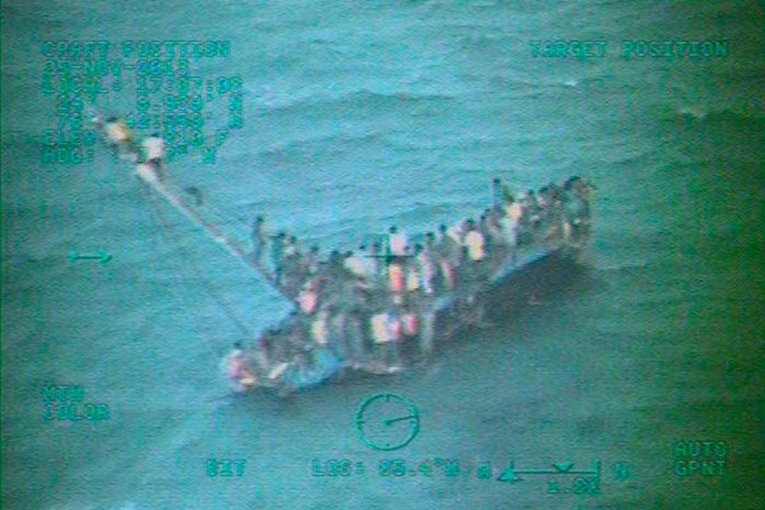NY Times
November 29, 2013

At least 30 Haitians who tried to sail to the United States were found drowned on Tuesday after their overloaded boat ran aground off the Bahamas and capsized, several days after fishermen tipped off Bahamian military authorities about the vessel.
The Bahamian military had been unable to conduct air searches for the boat, a 40-foot sloop dangerously packed with immigrants, because all three of its planes were out of service, a defense spokesman said. The Royal Bahamas Defense Force conducted an unsuccessful search by sea and notified the United States Coast Guard about it on Monday afternoon, after six survivors who had paddled to shore on a raft were apprehended. They said the ship ran aground on Saturday.
About an hour after deploying a helicopter, the Coast Guard found the boat 15 nautical miles from Harvey Cay, and 20 miles from where the fishermen first reported seeing it. The spot is about 250 miles southeast of Miami.
About 60 people were clinging to the sailboat and dozens more were standing in waist-high water, the Coast Guard said. No one had life jackets. The passengers, at sea since Nov. 18, had run out of food and water.
The Coast Guard hoisted 13 people to shore and, during the night, dropped food, water and eight life rafts to the others.
After an all-night journey, 108-foot Bahamian Navy vessel arrived at first light Tuesday and rescued 110 people, including 19 women.
“They are in pretty bad shape,” said Lt. Cmdr. Doug Jannusch of the Coast Guard, who is stationed in the Bahamas. “That’s probably why they had so many fatalities. A lot of them died of exposure. The water was cool, with the wind, they couldn’t stand it anymore.”
By Tuesday evening, five bodies had been recovered and 25 to 30 more were still in the water, said Lt. Origin Deleveaux, a spokesman for the Royal Bahamas Defense Force.
The survivors were being taken to the Coral Harbor military base and face probable deportation.
The episode was the latest in a series of shipwrecks involving Haitian migrants, who pay smugglers to ferry them across dangerous waters to the United States in vessels that are often unseaworthy. Many of the boats sail through the Bahamas, with passengers from as far away as Brazil.
